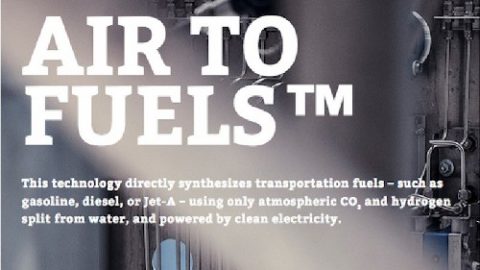
Illustration (Source: Carbonengineering.com)
Canada’s Carbon Engineering clean energy company has partnered with Harvard University scientists to discover how to extract a carbon-neutral fuel by capturing CO2 from the air and turning it into synthetic gasoline.
This process is called Air to Fuels (A2F), which simply refers to extracting carbon dioxide from the air, passing it through chemical processes and creating liquid hydrocarbon fuels.
In fact, to get this fuel source will be a bit more complicated. Carbon Engineering researchers use direct air suction technology (DAC), which acts like a new solar cell, allowing water to be split into hydrogen fuel. CO2 recycling plants extract CO2 from the air using a propeller assembly, then combine CO2 with liquid hydrogen separated from the water by its proprietary technology. Finally, neutral carbon liquid fuel such as gasoline or diesel is born.
This means that users do not have to modify their existing car engines to use this synthetic gasoline. In addition, CO2 can turn into a solid storage state for gradual use.
The biggest challenge Carbon Engineering faces is the cost of production. In a production capacity assessment report, the company said the synthesis process for a ton of CO2 would cost about $ 94 – $ 232, while fossil energy sources would be around $ 20 a barrel, much cheaper than new technology. However, Carbon Engineering is optimistic that in the future they will be able to produce synthetic fuels for about $ 1 a liter once production scale increases.
Geoff Holmes, Carbon Engineering Business Development Manager, said: “A2F (Air to Fuels) is feasible because it consumes 100 times less water and water than biofuels. But for this technology to become popular, we have to reduce the cost less than the current cost of oil extraction and may still have difficulty mobilizing trusting countries and starting to use this new type of fuel.